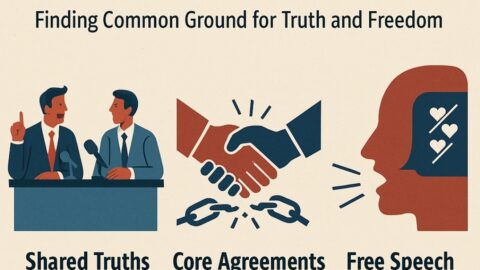Albert Camus: “Nobody realizes that some people expend tremendous energy merely to be normal.”
Understanding the Quote:
Albert Camus, a philosopher known for exploring existentialism and the absurdity of life, highlights the unseen struggles individuals face in their efforts to conform to societal expectations.
- Being ‘Normal’: Society defines “normal” based on cultural, social, and moral standards. This often involves suppressing one’s authentic self to fit into roles—employee, friend, family member, or citizen.
- Emotional Labor: For many, maintaining this image of “normalcy” requires an immense amount of emotional and mental energy.
- Hidden Struggles: People battling mental health issues, personal crises, or deep philosophical questions might appear ‘normal’ on the outside, but inside they are fighting battles no one sees.
Why Does This Happen?
- Fear of Judgment: Many people fear being judged or rejected if they reveal their true selves.
- Social Pressure: Society often rewards conformity and punishes deviation.
- Survival Mechanism: Fitting in sometimes feels essential for survival—financially, socially, and emotionally.
Connection to Truth:
When people expend so much energy to maintain a facade of normalcy, confronting uncomfortable truths about themselves or society becomes even more difficult. The effort to appear normal may blind them to realities they need to face.
Key Takeaway: Behind every “normal” person might be someone who is exhausted from the effort of holding themselves together. Understanding this can foster compassion and empathy for others.
Friedrich Nietzsche: “Sometimes, people don’t want to hear the truth because they don’t want their illusions destroyed.”
Connection to Camus:
- If individuals are already exhausted by maintaining normalcy, they are even less equipped to face uncomfortable truths.
- Truth can feel like an attack on the carefully built facade of normalcy.
- Admitting an uncomfortable truth might require dismantling years—or even decades—of emotional and mental scaffolding.
Real-Life Example:
A person in an unfulfilling career or relationship might ignore the truth about their unhappiness because confronting it would require disrupting their version of “normal.”
Key Takeaway: Illusions are often a protective layer, shielding people from the harshness of reality, but they also prevent growth and authentic living.
Plato: “No one is more hated than he who speaks the truth.”
Connection to Camus and Nietzsche:
- If people struggle to maintain their illusions (Nietzsche) and are exhausted by fitting into societal norms (Camus), then those who expose truths become deeply threatening.
- Truth-tellers often break the spell of comfort and force people to face uncomfortable realities, triggering defensiveness, anger, and even hatred.
Why Truth-Tellers Are Hated:
- They disrupt peace—even if it’s a false peace.
- They demand change, which many find exhausting or frightening.
- They shatter facades, forcing people to confront their vulnerabilities.
Real-Life Example:
- Galileo Galilei: He was persecuted for revealing scientific truths that clashed with established religious doctrine.
- Whistleblowers: People who expose corruption or injustice often face backlash rather than gratitude.
Key Takeaway: Speaking the truth requires courage, as it often invites rejection and hostility.
George Orwell: “In a time of universal deceit, telling the truth is a revolutionary act.”
Connection to Camus, Nietzsche, and Plato:
- If maintaining normalcy (Camus) and clinging to illusions (Nietzsche) are seen as necessary survival mechanisms, and truth-tellers (Plato) are punished, then speaking truth in such a world becomes a bold act of defiance.
- Orwell emphasizes that in a society built on false narratives and illusions, truth-telling isn’t just a moral act—it’s a revolutionary act that threatens the foundations of systemic deceit.
Modern Implications:
- In an era of social media manipulation, misinformation, and echo chambers, speaking truth becomes an act of rebellion.
- Those who challenge false narratives—whether personal or societal—risk alienation, censorship, or punishment.
Key Takeaway: Truth is not passive; it is a force that challenges power structures and disrupts collective illusions.
The Common Thread Between the Four Quotes
These four quotes offer a holistic understanding of truth, normalcy, and societal resistance:
- Camus: Many people exhaust themselves trying to appear “normal.”
- Nietzsche: Truth threatens the illusions people rely on for emotional security.
- Plato: Those who expose the truth are often met with hatred and rejection.
- Orwell: In a world built on falsehoods, truth becomes an act of rebellion.
Why Is This the Case?
- Human Nature: People crave comfort and security over uncomfortable growth.
- Social Conditioning: Societies often reinforce conformity and punish dissent.
- Fear of Change: Truth often demands action, accountability, and transformation.
How Do We Navigate This Reality?
- Self-Awareness: Recognize your own illusions and biases.
- Courage: Speak the truth, even if it’s uncomfortable.
- Empathy: Understand that people resist truth because it challenges their emotional safety.
- Resilience: Be prepared for backlash and rejection when speaking the truth.
Final Reflection
The journey to truth is not easy. People fight to maintain their illusions (Nietzsche) and struggle to keep up appearances (Camus). When someone speaks uncomfortable truths (Plato), society reacts with hostility. Yet, despite the resistance, truth remains the cornerstone of freedom and growth, and speaking it becomes a revolutionary act in a world built on deceit (Orwell).
In a world that fears and punishes truth, it takes both wisdom and courage to live authentically and speak honestly. The reward isn’t just in being right—it’s in being free.







